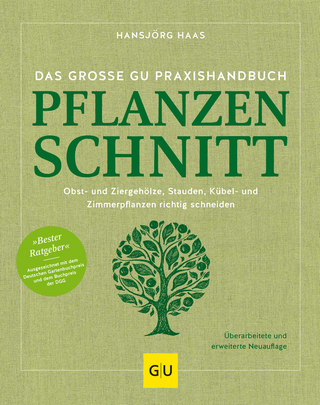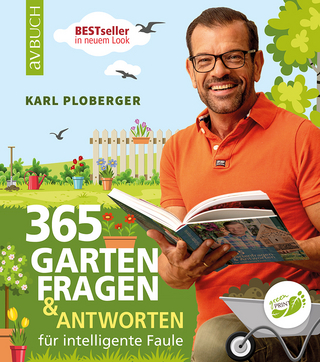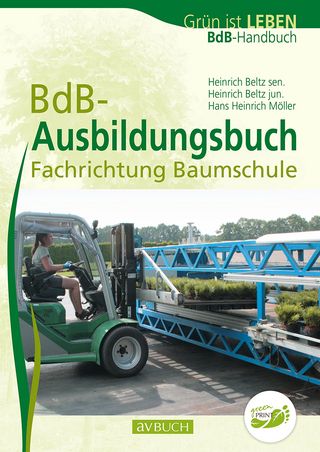
Wild Plant Culture
New Society Publishers (Verlag)
978-0-86571-980-4 (ISBN)
Reconnect. Restore. Reciprocate. Repairing landscapes and reconnecting us to the wild plant communities around us.
Integrating restoration practices, foraging, herbalism, rewilding, and permaculture, Wild Plant Culture is a comprehensive guide to the ecological restoration of native edible and medicinal plant communities in Eastern North America.
Blending science, practice, and traditional knowledge, it makes bold connections that are actionable, innovative, and ecologically imperative for repairing both degraded landscapes and our broken cultural relationship with nature. Coverage includes:
Understanding and engaging in mutually beneficial human-plant connections
Techniques for observing the land's existing and potential plant communities
Baseline monitoring, site preparation, seeding, planting, and maintaining restored areas
Botanical fieldwork restoration stories and examples
Detailed profiles of 209 native plants and their uses.
Both a practical guide and an evocative read that will transport you deep into the natural landscape, Wild Plant Culture is an essential toolkit for gardeners, farmers, and ecological restoration practitioners, highlighting the important role humans play in tending and mending native plant communities.
AWARDS
SILVER | 2023 Nautilus Book Awards | Green, Restorative Practices / Sustainability
HONORABLE MENTION | 2023 American Horticultural Society Book Awards
Jared Rosenbaum is a botanist, native plant grower, and ecological restoration practitioner. He and his wife run Wild Ridge Plants LLC, which grows local ecotype native plants using sustainable practices, performs botanical surveys, and provides ecological restoration planning services. Jared has extensive experience in stewardship and monitoring of natural communities. He is known as an educator in plant ecology, ecological restoration, and the cultural uses of wild plant foods and medicines. Jared is the author of two prior books on native plants, including the children's book The Puddle Garden, and maintains an active blog at wildplantculture.com. He is a Certified Ecological Restoration Practitioner by the Society for Ecological Restoration. He lives in New Jersey.
Acknowledgments
Section One: Restoring Reciprocity, Sustaining Sustenance
Introduction
The Farmer's Quandary
Two Human Paths
Who Is This Book For?
Chapter 1: A Different Way
Tending the Wild
Eat Local
Chapter 2: Plants in Relationship
Plant Planet
Carbon and Soils
Temperature and Water
Wild Plants as Food
Wild Plants as Medicine
Chapter 3: Ecological Restoration
Mimesis and the Reference
Ecosystem
Restoring Plants
Chapter 4: In Community with Nature
Communities
Belonging to an Ecological Community
Section Two: Learning Your Land
Chapter 5: Reading Geology, Soils, and Water
Soils and Geology
Water
Plants and Hydrology
Chapter 6: Land Use History
Land Use History and Habitat Quality
Post-Agricultural Soils
Natural Disturbances
Chapter 7: Reading the Story of the Land
Historical Aerial Photos and Maps
Analyzing the Landscape
Indicators of a Remnant
Indicators of Disturbed Habitats
Making Your Own Map
Tend or Mend
High-Quality Sites → Tend
Low-Quality Sites → Mend
Section Three: Plant Communities and Culturally Useful Plants
Chapter 8: Plant Communities
Plant Community: Riparian Forests
Plant Community: Rich Mesic Forest
Plant Community: Upland Oak Forest
Plant Community: Glades
Plant Community: Meadows and Grasslands
Plant Community: Forested Wetlands
Plant Community: Sunny Wetlands and Shores
Plant Community: High Elevation and Northern Forests
Plant Community: Sandy Pine and Oak Forests
Plant Community: The Seashore
Chapter 9: Plant Species
Section Four: Restoring Your Land
Chapter 10: The Reference Site
How to Find a Reference Site
Interpreting a Natural Area for Beginners
Chapter 11: Repairing Soils
Soil Amendments
Wood Chips
Leaf Compost
Mycorrhizal Fungi
Biochar
Decompacting Soil
Restoring Landscape Structure
Pit and Mound Topography
Structural Repair Methods
Chapter 12: Vegetation Control
Tillage
Smothering and Solarizing
The "Lasagna" Mulching Method
Herbicides
Chapter 13: Burning
Indigenous Fire
Transitions
Ecological Potential
Chapter 14: Deer Management and Exclusion
Protecting Plantings from White-Tailed Deer
Chapter 15: Introducing Plant Materials
Planting
Seeding
Post-Seeding Maintenance for Meadows
Meadow Maintenance
Conclusion: A Missing Link
Belonging to This Place
Appendix — Assessment and Monitoring Techniques
Assessment and Monitoring
Baseline Monitoring
Monitoring Methods
Photo Monitoring
Biological Inventories
Floristic Quality
Assessment
Sampling Units
Endnotes
Index
About the Author
About New Society Publishers
| Erscheinungsdatum | 12.11.2022 |
|---|---|
| Zusatzinfo | 30 Halftones, color; 120 Halftones, black and white |
| Verlagsort | Gabriola Island |
| Sprache | englisch |
| Maße | 191 x 225 mm |
| Gewicht | 590 g |
| Themenwelt | Sachbuch/Ratgeber ► Natur / Technik ► Garten |
| Sachbuch/Ratgeber ► Natur / Technik ► Natur / Ökologie | |
| Naturwissenschaften ► Biologie ► Botanik | |
| ISBN-10 | 0-86571-980-2 / 0865719802 |
| ISBN-13 | 978-0-86571-980-4 / 9780865719804 |
| Zustand | Neuware |
| Informationen gemäß Produktsicherheitsverordnung (GPSR) | |
| Haben Sie eine Frage zum Produkt? |
aus dem Bereich


